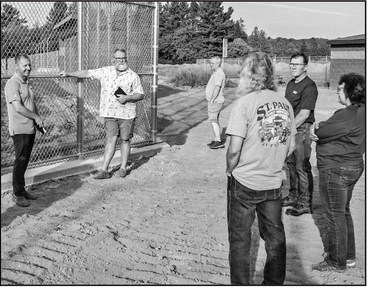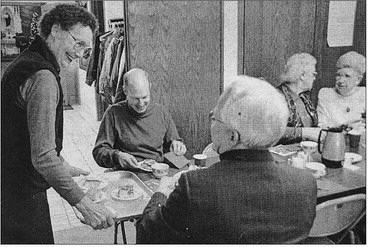Donations close funding gap for park


By Kevin O’Brien
As predicted by village administrator Steve Cherek back in July, Marathon City has received enough private donations from multiple sources to close a $311,000 funding gap in its ballpark project, which will allow the village to borrow less money to complete the current phase of the complex. Cherek announced at the Sept. 4 village board meeting that the village had received two donations for $150,000 each, plus another donation for lights to cover one of the three ballfields and a control panel for all for future fields. Another donation for up to $130,000 in playground equipment also came in, he noted, and a $25,000 donation for pickleball courts has been matched.
“So, it looks like we’re going to have pickleball,” he said.
Trustees praised Cherek for his continued efforts to bring in private donations, which include working with a local business owner on a fundraiser to help cover the cost of outfitting the new concession stand with coolers, tables and other equipment.
In July, the board authorized $2.8 million in short-term borrowing, which included $1.8 million for ballpark expenses, but $700,000 from a pledged $1 million donation came in earlier than expected. Cherek said the donor was happy to see construction progressing and decided to release the funds now so that the village doesn’t have to spend as much money on interest.
Overall, Cherek said he’s making sure the project is staying within the $3.7 million budget, though it’s been challenging due to certain issues with contractors. At this point, he said the village does not need to sell Veterans Park, as originally planned, in order to finish this phase of the project.
“Right now, this park is being completed with donation sources and grant funding,” he said.
Cherek also gave trustees a progress report on the construction itself, with special attention paid to drainage issues on the fields resulting in water pooling near the dugouts. He said the infields will need to be re-graded and he’s working with the project engineer at Vierbicher to determine who is responsible for covering those extra costs.
Because the grading work will delay grass seeding, the start date for games to be played on the fields next spring may need to be pushed back, he said.
“It’s more critical to get it done correctly,” he said. This phase of the project includes three baseball fields, a two-story concession stand/pressbox, two basketball courts and a batting cage.
Steve Cherek


